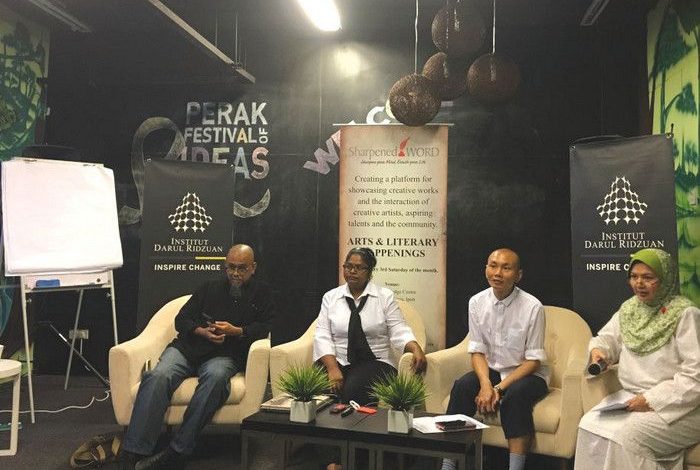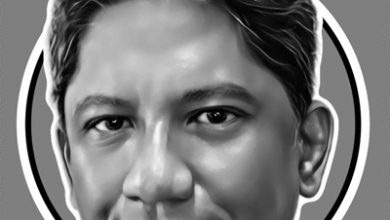Passionate about Art


“Art is increasingly being commercialised. It’s used as a tool for entertainment purposes and that degrades its value,” said Jayanthi Nalaiya, Global Art arts educator, during the monthly literary forum, Sharpened Word held at Institut Darul Ridzuan on Saturday, July 21.
Her comment received the backing of Hwa Kean, also known as Jiu, an Ipoh-based independent visual and installation artist.
“If it’s up to me, I would ban kids colouring competitions. When you pick a winner and a loser, you’re telling a child that their artwork isn’t good enough. We shouldn’t de-motivate our children as such,” he insisted.


“These people usually don’t understand art. They organise competitions like this to occupy the children’s time, while they promote their products and services to the adults,” she added.
“Instead of competitions, we should have exhibitions. We’ve to focus on encouraging kids to pursue their passion, instead of instilling the “not-good-enough mentality” in them at such a young age. That’s very discouraging,” Jiu continued.
Jayanthi who has worked with children for 10 years, added that art is a form of self-expression.
“We remote control our children. We tell them what’s wrong, what’s right, what they can do and what they can’t do. How’re they supposed to express their feelings if we fail to provide them with an outlet?” she questioned.
A Malaysian Institute of Arts graduate, she shared the struggles she faced to pursue her dreams.
“My father was not happy at all. My high school teachers personally came to my house to convince him, and even then he was not happy. He finally allowed me to go, half-heartedly. There was so much tension and dissatisfaction, I could only complete my 3-year diploma programme after six years,” she said.
Husin Hourmain, contemporary abstract expressionist artist, told a different story.
“I was fortunate to have a father who supported my passion. I knew at a very young age that I was not made for academics, I wanted to build myself a future in the arts,” he mused.
Having worked in the advertising industry for ten years before finally deciding to follow his dreams, he said that his journey was not easy.
“I was earning up to RM10,000 a month. It was a drastic change, from corporate to art. Until six years ago, I was selling nasi lemak to buy art supplies and fund myself. My family has always been supportive, and that motivates me to keep going,” he said.
Referring to his disdain for academics, he admitted that art requires just as much research and studies.
“I do up to three years’ worth of research, as my art is an expression of my spirituality and the questions I have. My inspiration to start painting was actually my attempt at understanding religion,” he posited.
“Art is not as easy as it’s made to be. When you’re an artist, you’re your own boss. As lax as that sounds, it is a taxing concoction of hard work and discipline. Without discipline, you’ll get nowhere,” said Husin.
The panel also discussed art being viewed as a ‘last-resort’ when it comes to tertiary education.
“Our schools don’t emphasise on arts. Even in universities, students study art because they’re left with no choice. Their results are not good enough for tougher courses, so they end up doing art,” Husin lamented.
This is a much-needed wake-up call.
Art is not a last resort.
To some, it is a passion, nights and days spent slaving in a studio. It is standing up against societal expectations and stereotypes. It is love and aspiration. It is an embodiment of blood, sweat and tears.
Loshni Nair


